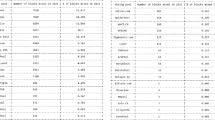Abstract
Owing to the novel proof-of-work based consensus algorithm, bitcoin has been the most successful decentralized cryptocurrency so far. In bitcoin system, parties (miners) compete to create blocks by doing publicly verifiable proofs of sequential work (proof-of-work) and the probability that a party wins the competition is proportional to the amount of computational power that he has invested. Note that its security holds under honest majority assumption in terms of the amount of computational power. In this paper, we provide the formal analysis of bitcoin backbone protocol in the non-flat model. Precisely, we rethink and redefine the model of computing puzzles to capture the real-world protocol execution, where each party owns different amount of computational power and does sequential computations towards a puzzle independently. Fortunately, our work obtains the better results in analyzing the security of bitcoin backbone protocol, which can reflect the real-world protocol execution better, without any additional assumptions but the honest majority assumption. Finally, we show that a robust public transaction ledger can be built on top of bitcoin backbone protocol in our model securely.
Similar content being viewed by others
References
Nakamoto S. Bitcoin: a peer-to-peer electronic cash system. 2008. http://bitcoin.org/bitcoin.pdf
Dwork C, Naor M. Pricing via processing or combatting junk mail. In: Advances in Cryptology—CRYPTO’92. Berlin: Springer, 1993. 139–147
Rivest R L, Shamir A, Wagner D A. Time-Lock Puzzles and Timed-Release Crypto. Technical Report, Cambridge, 1996
Garay J, Kiayias A, Leonardos N. The bitcoin backbone protocol: analysis and applications. In: Advances in Cryptology—EUROCRYPT 2015. Berlin: Springer, 2015. 281–310
Pass R, Seeman L, Shelat A. Analysis of the blockchain protocol in asynchronous networks. In: Advances in Cryptology—EUROCRYPT. Berlin: Springer, 2017. 643–673
Garay J, Kiayias A, Leonardos N. The bitcoin backbone protocol with chains of variable difficulty. In: Advances in Cryptology—CRYPTO 2017. Berlin: Springer, 2017. 291–323
Ratnasamy S, Francis P, Handley M, et al. A scalable content-addressable network. SIGCOMM Comput Commun Rev, 2001, 31: 161–172
Druschel P, Rowstron A. Past: persistent and anonymous storage in a peer-to-peer networking environment. In: Proceedings of IEEE Workshop on Hot Topics in Operating Systems, 2001. 65–70
Castro M, Liskov B. Practical byzantine fault tolerance and proactive recovery. ACM Trans Comput Syst, 2002, 20: 398–461
Abd-El-Malek M, Ganger G R, Goodson G R, et al. Fault-scalable byzantine fault-tolerant services. SIGOPS Oper Syst Rev, 2005, 39: 59–74
Clement A, Wong E L, Alvisi L, et al. Making byzantine fault tolerant systems tolerate byzantine faults. In: Proceedings of the 6th USENIX Symposium on Networked Systems Design and Implementation, Boston, 2009. 153–168
Decker C, Wattenhofer R. Information propagation in the bitcoin network. In: Proceedings of International Conference on Peer-To-Peer Computing, 2013. 1–10
Sompolinsky Y, Zohar A. Secure high-rate transaction processing in bitcoin. In: Financial Cryptography and Data Security. Berlin: Springer, 2015. 507–527
Wei P, Yuan Q, Zheng Y, et al. Security of the blockchain against long delay attack. In: Advances in Cryptology— ASIACRYPT 2018. Berlin: Springer, 2018. 250–275
Tsabary I, Eyal I. The gap game. In: Proceedings of ACM International Conference on Systems and Storage, 2018.
Eyal I, Sirer E G. Majority is not enough: bitcoin mining is vulnerable. Commun ACM, 2018, 61: 95–102
Sarkar P. Multi-stage proof-of-work blockchain. IACR Cryptology ePrint Archive, 2019, 2019: 162
Szalachowski P, Reijsbergen D, Homoliak I, et al. StrongChain: transparent and collaborative proof-of-work consensus. 2019. ArXiv: 1905.09655
David B, Gaži P, Kiayias A, et al. Ouroboros praos: an adaptively-secure, semi-synchronous proof-of-stake blockchain. In: Proceedings of International Conference on the Theory & Applications of Cryptographic Techniques. Berlin: Springer, 2018. 66–98
Badertscher C, Gazi P, Kiayias A, et al. Ouroboros genesis: composable proof-of-stake blockchains with dynamic availability. In: Proceedings of Computer and Communications Security, 2018. 913–930
Chaum D, Rivest R L, Sherman A T. Blind signatures for untraceable payments. In: Advances in Cryptology. Berlin: Springer, 1983. 199–203
Baldimtsi F, Chase M, Fuchsbauer G, et al. Anonymous transferable e-cash. In: Public-Key Cryptography—PKC 2015. Berlin: Springer, 2015. 101–124
Tewari H, Hughes A. Fully anonymous transferable ecash. IACR Cryptol ePrint Archive, 2016, 2016: 107
Canard S, Pointcheval D, Sanders O, et al. Divisible e-cash made practical. IET Inf Secur, 2015, 10: 332–347
Miers I, Garman C, Green M, et al. Zerocoin: anonymous distributed e-cash from bitcoin. In: Proceedings of 2013 IEEE Symposium on Security and Privacy, 2013. 397–411
Sasson E B, Chiesa A, Garman C, et al. Zerocash: decentralized anonymous payments from bitcoin. In: Proceedings of 2014 IEEE Symposium on Security and Privacy (SP), 2014. 459–474
Canetti R. Security and composition of multiparty cryptographic protocols. J Cryptol, 2000, 13: 143–202
Canetti R. Universal composable security: a new paradigm for cryptographic protocols. In: Proceedings of IEEE Symposium on Foundations of Computer Science, 2001
Kiayias A, Panagiotakos G. Speed-security tradeoffs in blockchain protocols. IACR Cryptol ePrint Archive, 2015, 2015: 1019
Acknowledgements
This work was supported by National Key R&D Program of China (Grant No. 2017YFB0802500) and Beijing Municipal Science and Technology Project (Grant No. Z191100007119007).
Author information
Authors and Affiliations
Corresponding author
Electronic supplementary material
Rights and permissions
About this article
Cite this article
Ni, P., Li, H. & Pan, D. Analysis of bitcoin backbone protocol in the non-flat model. Sci. China Inf. Sci. 63, 130105 (2020). https://doi.org/10.1007/s11432-019-2698-1
Received:
Revised:
Accepted:
Published:
DOI: https://doi.org/10.1007/s11432-019-2698-1




